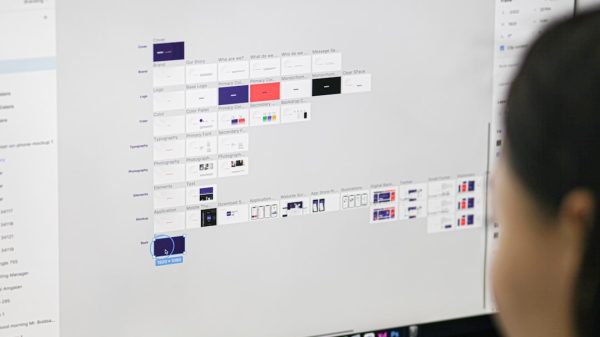As the ecommerce industry continues to evolve at an unprecedented pace, businesses must adopt robust, flexible, and forward-thinking platforms to stay competitive. NetSuite Ecommerce has proven itself as a leading solution for companies aiming to streamline their operations, deliver superior customer experiences, and scale efficiently. With 2025 just around the corner, it’s imperative to understand and implement the top features of NetSuite Ecommerce that can drive your online business success.
Whether you are a scaling brand or an established enterprise, effectively leveraging NetSuite’s key functionalities will be essential to remain resilient and innovative in a changing digital landscape. In this article, we explore the top features of NetSuite Ecommerce that every business should be utilizing to guarantee a successful 2025.
1. Unified Commerce Platform
One of NetSuite Ecommerce’s most powerful assets is its unified commerce platform, which integrates all key business processes — financials, inventory, CRM, and ecommerce — into one centralized system. This holistic approach ensures a single source of truth across departments, reducing data duplication while improving operational transparency and agility.
Businesses can manage their entire operation from a single platform, providing real-time visibility into customer activities, product performance, and profitability. With this unified architecture, decisions can be made faster and based on reliable data, enhancing both strategic planning and customer satisfaction.
2. Personalized and Dynamic Web Experiences
Modern consumers expect more than just functionality from ecommerce websites — they demand personalized, intuitive experiences that reflect their preferences. NetSuite allows merchants to deliver personalized content, pricing, and promotions based on customer segments, behavior, or purchase history.
Dynamic, content-driven design features enable site admins to easily update web pages, banners, and calls-to-action without needing developer intervention. Whether B2B or B2C, companies can tailor the buyer’s journey to increase conversion rates and average order value.
NetSuite’s dynamic merchandising capabilities also allow businesses to automate product recommendations, optimize upselling strategies, and deliver consistency across all customer touchpoints.

3. B2B and B2C Flexibility
One standout feature of NetSuite Ecommerce is its ability to support both B2B and B2C models on a single platform. Whether your business is selling to large distributors or end consumers, NetSuite facilitates a seamless, branded experience for every user type.
For B2B operations, it includes critical features such as negotiated pricing, customer-specific catalogs, bulk ordering, and self-service portals. At the same time, it offers B2C-focused elements like responsive design, secure checkout, and mobile-first performance.
This flexibility allows companies to pivot or evolve their business models without reinvesting in different platforms or third-party integrations, making NetSuite a future-proof solution.
4. Real-Time Inventory and Order Management
Order fulfillment and inventory transparency can make or break ecommerce operations. NetSuite Ecommerce offers real-time inventory management, allowing businesses to track stock levels, monitor reorder points, and avoid costly stockouts or overstock situations.
This level of control is essential for providing reliable fulfillment timelines to customers and adapting to demand fluctuations driven by seasonality or promotions. Because the platform integrates inventory data with order processing, shipping, and customer service systems, it eliminates silos and supports a seamless end-to-end operation.
With comprehensive insights into sales velocity, automated replenishment rules, and product lifecycle data, brands can maintain lean, efficient inventory operations that scale with demand.
5. Multi-Channel Selling and Global Expansion Support
As consumers interact with brands across multiple platforms — from social networks to online marketplaces — it’s crucial for ecommerce systems to accommodate omnichannel strategies. NetSuite allows for seamless product syndication and order orchestration across major sales channels, including Amazon, eBay, and custom mobile apps.
Moreover, NetSuite is built to support international growth. It includes native features for multiple currencies, taxes, languages, and compliance regulations, making it easier to expand into new markets. Companies can manage localized storefronts within a single backend system, maintaining brand cohesion while catering to regional needs.

6. Advanced Marketing and SEO Tools
NetSuite Ecommerce incorporates sophisticated marketing capabilities that help businesses attract, engage, and convert shoppers. The built-in marketing module includes tools for managing targeted campaigns across email, social media, and search engines.
When it comes to organic discovery, NetSuite’s ecommerce platform is fully optimized for SEO. Merchants can control meta tags, URL naming conventions, and schema markup to boost visibility in search results. With built-in analytics and A/B testing capabilities, businesses can continuously refine content to improve performance and ROI.
Furthermore, integration with CRM modules allows you to create extensive customer profiles and segment data for hyper-targeted campaign execution — ensuring relevancy and resonance with your audience.
7. Mobile-First and Responsive Design
In 2025, mobile commerce is projected to account for nearly 75% of all ecommerce spending. Recognizing this shift, NetSuite Ecommerce provides a responsive design framework that automatically adapts content to devices of all sizes, enhancing the user experience across mobile and tablet formats.
This mobile-first approach ensures that your site loads quickly, functions smoothly, and maintains visual integrity regardless of the customer’s device — a critical factor for reducing bounce rates and improving conversions.
Developers can also take advantage of NetSuite’s SuiteBuilder and SuiteCommerce Advanced capabilities to create custom mobile interfaces and workflows, giving brands complete control over the mobile shopping journey.
8. Robust Analytics and Business Intelligence
In today’s data-driven environment, access to accurate and actionable insights is non-negotiable. NetSuite Ecommerce offers extensive reporting and analytics functionalities that span across the entire business ecosystem.
From monitoring site traffic, conversion rates, CLV (Customer Lifetime Value), to forecasting product performance, users gain real-time dashboards and detailed reports that fuel data-led decisions. Custom KPIs, interactive filters, and visualization tools make it easier for stakeholders at all levels to glean the insights they need.
With NetSuite’s embedded BI tools, you can identify trends, pinpoint inefficiencies, and uncover growth opportunities before your competitors do.
9. Scalable Architecture and Customization
As your ecommerce operations grow, so do your requirements. NetSuite’s cloud-native infrastructure is designed to scale as your business expands — whether that means adding new product lines, entering new markets, or onboarding new brands within a portfolio structure.
You can extend functionality through SuiteApps or leverage SuiteScript to create tailored workflows and processes. Advanced APIs and integration frameworks ensure seamless communication with third-party services including payment gateways, shipping carriers, ERPs, and external CRM systems.
This extensibility guarantees that your investment in NetSuite remains viable and valuable regardless of how your needs evolve.
10. Security, Compliance, and Uptime
With increasing sophistication in cyber threats, ensuring data protection, compliance, and service reliability has never been more critical. NetSuite provides enterprise-grade security features including role-based access controls, two-factor authentication, data encryption, and ISO 27001 compliance to safeguard sensitive business data.
The platform is hosted on Oracle’s robust cloud infrastructure which offers high levels of uptime, resilience, and disaster recovery protocols. This ensures that your ecommerce platform remains reliable and operational 24/7 — a core requirement in today’s always-on retail environment.
Conclusion
As we approach 2025, succeeding in ecommerce will be less about choosing separate tools and more about selecting integrated platforms that bring synergy across all areas of the business. NetSuite stands apart by offering exactly that — an end-to-end solution that unites ecommerce with back-office operations, CRM, and analytics under one roof.
By capitalizing on these top features of NetSuite Ecommerce, companies can elevate customer experiences, improve operational efficiency, and unlock new opportunities for growth. The future of digital commerce belongs to businesses who think holistically, act swiftly, and adapt strategically — and with NetSuite, you’re empowered to do all three.


































